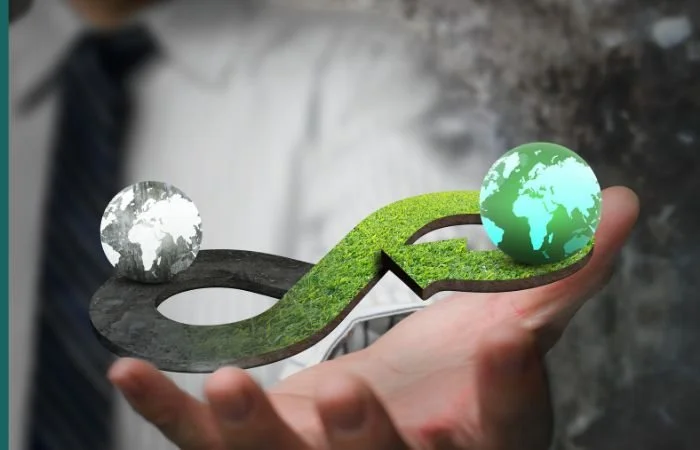The importance of driving a shift towards a circular economy
In the wake of COP26, there is a renewed focus on sustainability and reducing carbon emissions. Preventing deforestation, energy transitions to renewables and action from the private sector were some of the take outs, yet they may not feel as if they affect the average person each day.
One area that an individual or business can take responsibility for through their own actions is committing to a circular economy, and businesses need to start facilitating that. A circular economy means we buy less ‘brand new’ products, reducing the manufacturing of them which in turn reduces the amount of resources used. This can be anything from renting clothes, toys, regifting around Christmas to buying preloved or refurbished devices. We’ve already seen a massive push on this in recent years with the rise of a movement against fast fashion, and many businesses offering rental clothes instead of buying new. Within the tech space, we’re starting to see big tech businesses respond to the need for a circular economy, for example, Apple have announced they’ll sell individual parts to repair phones at home, however far more needs to be done.
It may surprise many that 3% of the global carbon emissions are produced by the aircraft sector, traversing the globe, yet this is less than the total impact of carbon emissions from the digital sector (4%), half of which is attributed to the production of new technology.
We hear a lot about the importance of local travel, or the devastating impact of fast fashion, and how to reduce our actions, but little is said of the impact of our consumerism with the latest mobile phones, devices and tech, which are rarely recycled or reused. As we enter the world’s busiest shopping period, now is the key moment to discuss this trend in the UK and how we, as individuals and businesses, can mitigate our strain on the environment and help build an efficient circular economy.
The need for an efficient circular economy
In 2020, there were 53.6 million tonnes of e-waste generated, and 57.4million tonnes so far in 2021 and estimated to grow to 81 million tonnes by 2030. By creating a circular economy, instead of throwing out old tech, devices and other products, we fix them instead using spare parts and give them a new lease of life without putting pressure on precious resources.
A circular economy is not only necessary to reduce our carbon emissions but has a wider effect and advantages. Recently the shortages of components such as computer chips has had a massive effect on the tech industry as demand has stayed high but production hasn’t been able to keep up due to pandemic-related disruptions. In a circular economy where tech gadgets and devices are refurbished to give them a new lease of life, a lot of the components used are for older models, meaning that they’re not impacted by these shortages fuelled by consumer demand.
Changing the stigma of refurbish tech
One of the biggest challenges is educating consumers and overcoming the stigma of refurbished tech. As a nation, we understand the impact of fast fashion, and how buying vintage or second-hand clothing is a positive change. Yet, in regards to tech, we’re led to believe by big tech companies that we always need the latest, shiniest and newest product. The concept of refurbished tech has been largely negative, with many believing that it doesn’t live up to the standards of new tech. With companies like Apple offering an upgrade programme for a new iPhone each year, it’s not surprising that these attitudes still exist.
Refurbished tech, however, gives everyone the opportunity to change devices without the same impact as buying new. People can send in their old devices to sellers who will repair the devices - sometimes it’s just aesthetics and sometimes other parts need replacing to bring it back to 100% functionality. Most refurbishers offer the same guarantees as big tech brands as well, meaning that customers can still be reassured by a 12 month guarantee.
The voice of e-waste
There is a growing movement over the last few years around the education of how much e-waste we’re generating each year and the importance of reducing our footprint in all aspects of our lives, however awareness has definitely been boosted by the recent climate change and sustainability discussions.
Through continually educating people on the options for a circular economy beyond the obvious move away from fast fashion, and how we can change different aspects of our lives from food, tech and more, we can start to make an impact as individuals and businesses. E-waste already has a monumental impact on the environment through production of new technology, and now is the time to address that through encouraging a circular economy.








